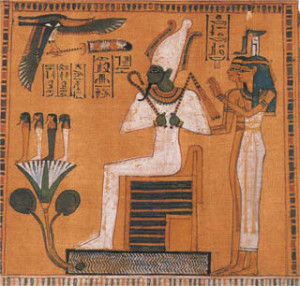 Here it is, part two of the series on philosophy of mind, In Search of the Soul. In this episode I introduce the viewpoint called emergentism, and I explore the argument for dualism from free will.
Here it is, part two of the series on philosophy of mind, In Search of the Soul. In this episode I introduce the viewpoint called emergentism, and I explore the argument for dualism from free will.
It’s not the most exciting of episodes, but it’s worth including and listening to if you’re wanting to get a decent overview of philosophy of mind because it lays out a major position (emergentism) and examines a pretty common argument for dualism. In episode 28 (I’ve decided that the whole series will be no more than five episodes long), I’ll look at William Hasker’s (among other people) objection to physicalism from the possibility of an afterlife, which I think will be a lot more interesting.
Glenn Peoples
Podcast: Play in new window | Download
UPDATE: Here the whole series, now that it is complete:

 In this episode of the Say Hello to my Little Friend podcast I start a four part series on philosophy of mind. I know I recently said that it would be a three part series, but hey, even four parts isn’t really enough to give the subject the full treatment it deserves. In part one I start with the dualist end of the spectrum. Today it’s Cartesian/Platonic dualism, which I take to be the most popular variety.
In this episode of the Say Hello to my Little Friend podcast I start a four part series on philosophy of mind. I know I recently said that it would be a three part series, but hey, even four parts isn’t really enough to give the subject the full treatment it deserves. In part one I start with the dualist end of the spectrum. Today it’s Cartesian/Platonic dualism, which I take to be the most popular variety. It has finally arrived, episode 25. It’s a bit of a different topic for me, not very philosophical, I guess a little theological, just some ideas that have been on my mind a bit lately about how we should approach the world and what it means to be a Christian in it.
It has finally arrived, episode 25. It’s a bit of a different topic for me, not very philosophical, I guess a little theological, just some ideas that have been on my mind a bit lately about how we should approach the world and what it means to be a Christian in it. Here it is, Episode 24. The United States of America has a new president: Barack Hussein Obama. Like a lot of people, I have a few thoughts about that, and in this episode I’m sharing a few of those thoughts.
Here it is, Episode 24. The United States of America has a new president: Barack Hussein Obama. Like a lot of people, I have a few thoughts about that, and in this episode I’m sharing a few of those thoughts. Is Christian hope all about going to heaven, rather than you-know-where?
Is Christian hope all about going to heaven, rather than you-know-where? Did the Church conspire to hide the truth about other Gospels that did not make it into the Bible?
Did the Church conspire to hide the truth about other Gospels that did not make it into the Bible? Is Jesus just Osiris with a new face? In Episode 19 I look at the sceptical argument claiming that Christianity was really just a collection of beliefs borrowed from pagan religions, and that Jesus was just a re-hash of one or many other Messiah or god-man figures. As there would be no way to deal with all of these other religions in one episode, I’ve chosen to use the example of the ancient Egyptian deity Osiris. In short, the sceptical argument is not particularly well supported by the facts.
Is Jesus just Osiris with a new face? In Episode 19 I look at the sceptical argument claiming that Christianity was really just a collection of beliefs borrowed from pagan religions, and that Jesus was just a re-hash of one or many other Messiah or god-man figures. As there would be no way to deal with all of these other religions in one episode, I’ve chosen to use the example of the ancient Egyptian deity Osiris. In short, the sceptical argument is not particularly well supported by the facts. Here it is, Episode 18. Here I draw on the work of the fourth century bishop of Alexandria, Athanasius. His work called The Incarnation of the Word is my all-time favourite work from the Church Fathers, and I think it gives us excellent theological reasons for adopting annihilationism. Along the way, it invites a theological storm over what it meant for Christ to become subject to death as one of us.
Here it is, Episode 18. Here I draw on the work of the fourth century bishop of Alexandria, Athanasius. His work called The Incarnation of the Word is my all-time favourite work from the Church Fathers, and I think it gives us excellent theological reasons for adopting annihilationism. Along the way, it invites a theological storm over what it meant for Christ to become subject to death as one of us.